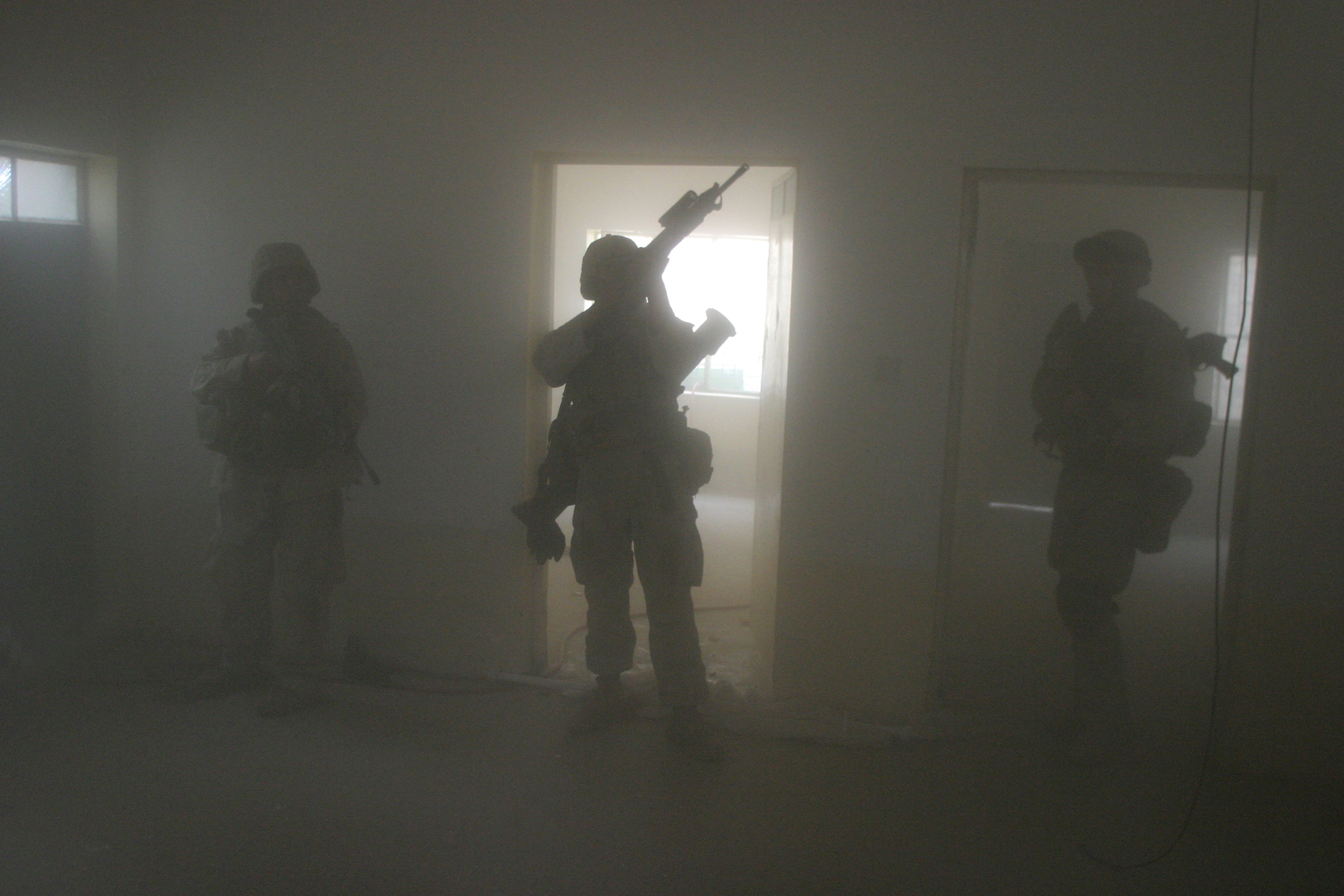What Are the Ramifications of the Haditha Case?

February 7, 2012
Share
Only one thing is clear about the legal resolution of the Haditha case: No one is entirely happy with it. Supporters of the accused Marines are still angry about the initial version of the story that portrayed the squad as cold-blooded executioners.
The fact that none of the Marines involved will serve any time in prison provoked outrage in Iraq and across the world. And it’s done little to clarify the rules of war.
Victor Hansen, an expert in military law and former officer with the Army’s Judge Advocate General Corps, says, he’s “frustrated like many who are observing it from the outside.”
But he’s also frustrated because the trial didn’t clarify the understanding of the rules of engagement — the criteria for using deadly force. They can change from deployment to deployment.
Sometimes it’s okay to “shoot first and ask questions later”; sometimes it’s not. So the question in this case was: Did Staff Sergeant Wuterich use proper procedures to identify his targets before ordering an attack?
“I don’t think there is a sense of clarity in terms of this case you know in terms of what you say positive identification what level of specificity should these Marines have had a when they went into the home,” says Hansen.
“If anything it’s enhanced ambiguity,” according to Gary Myers, who has been practicing military law for 43 years, and has been involved in the defense of the My Lai, and Abu Ghraib cases among many others. He defended Lance Corporal Justin Sharratt, whose charges for murder in the Haditha incident were ultimately dropped.
Myers worries that ambiguity can be deadly for servicemen. “My great fear from these prosecutions is that you have soldiers and Marines in the field who because of fear of prosecution become reluctant to fire their weapons,” he says. “Which compromises their own safety and the safety of their buddies. So we have to be very careful about what we do in circumstances such as this.”
But what about the safety of civilians on the ground when the rules of engagement allow for ambiguity? After the Haditha incident became infamous, the Marine Corps changed their training for counterinsurgency operations, adding cultural sensitivity training, and in some cases encouraging that moment of hesitation that can actually put the lives of marines at risk.
Sarah Holewinski, the executive director of the Campaign for Innocent Victims in Conflict (CIVIC), says she’s seen the change.
“In Afghanistan there’s a lot of talk now about courageous restraint which means if you’re going after a particular combatant in a community and it he is surrounded by civilians you actually do have an obligation to walk away for furtherance of the mission, instead of going after him.”
But Holewinski says civilians in Afghanistan and Iraq are much more aware of the Haditha verdict than the efforts at restraint. So while the Haditha incident might have transformed the Marine Corps, the outcome of the trials may mean they get little credit.
Click the play button below to hear the audio version of this story:
[theworld mp3=”020720126″]
Related Documentaries
Latest Documentaries
Related Stories
Related Stories
Explore
Policies
Teacher Center
Funding for FRONTLINE is provided through the support of PBS viewers and by the Corporation for Public Broadcasting, with major support from Ford Foundation. Additional funding is provided the Abrams Foundation, Park Foundation, John D. and Catherine T. MacArthur Foundation, Heising-Simons Foundation, and the FRONTLINE Trust, with major support from Jon and Jo Ann Hagler on behalf of the Jon L. Hagler Foundation, and additional support from Koo and Patricia Yuen. FRONTLINE is a registered trademark of WGBH Educational Foundation. Web Site Copyright ©1995-2025 WGBH Educational Foundation. PBS is a 501(c)(3) not-for-profit organization.




















